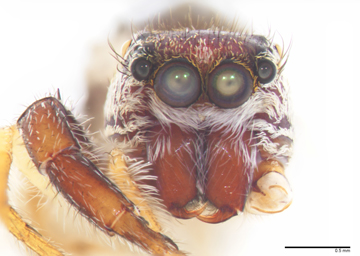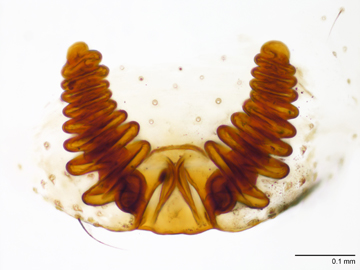Welcome
Enter the Spider Inventories menu and use the New Image Database. The araneomorphs of Estación de Biología Chamela IB-UNAM are also published.
Our laboratory documents the species diversity of Araneomorphae spiders from Mexico. The objective is to provide the best online documentation of their morphology to help other areas of Biological research. We have approximately 1,000 species collected in various diversity inventories documented with 11,597 images.
The following books provide a good introduction to the biology and diversity of Araneae:
Spiders of the World: A Natural History (Platnick & Hormiga et al. 2020).
Spiders of North America an identification Manual 1st or 2nd edition (Ubick et al. 2005, 2017).
Biology of Spiders 3ed (Foelix 2011).
We hope that you find these data useful and thanks for your visit.
Copyright 
All data included
in www.unamfcaracnolab.com are licensed under a Creative Commons Attribution-NonCommercial-ShareAlike 4.0 International License. The use of these data is limited for research, educational, non-commercial use as defined under the above CC License. Colleagues are welcome to use these data so long as the following Institutions are acknowledged: Facultad de Ciencias UNAM Laboratorio de Aracnoloía, Colección Nacional de Arácnidos Instituto de Biología UNAM (CNAN) and this website is cited as the source of the data. Users are NOT allowed to publish any of these data as part of their research papers without explicit permission from F. Álvarez-Padilla and Dr. Edmundo González Santillán Curator of the CNAN where all specimens are deposited.Please cite this website as follows:
- Álvarez-Padilla F. 2012. Laboratorio de Aracnología. Facultad de Ciencias UNAM, online at http://www.unamfcaracnolab.com {date of access}.

